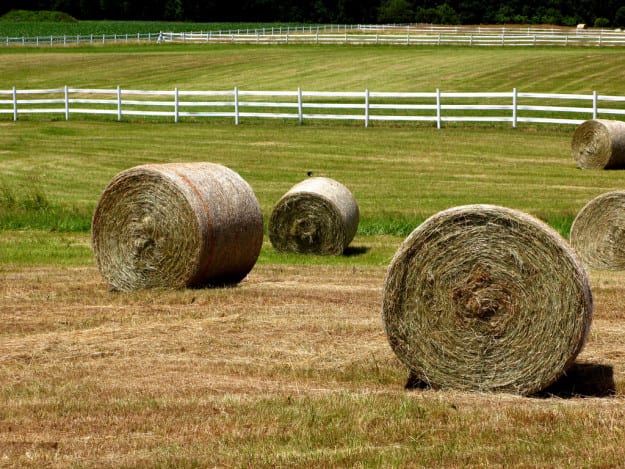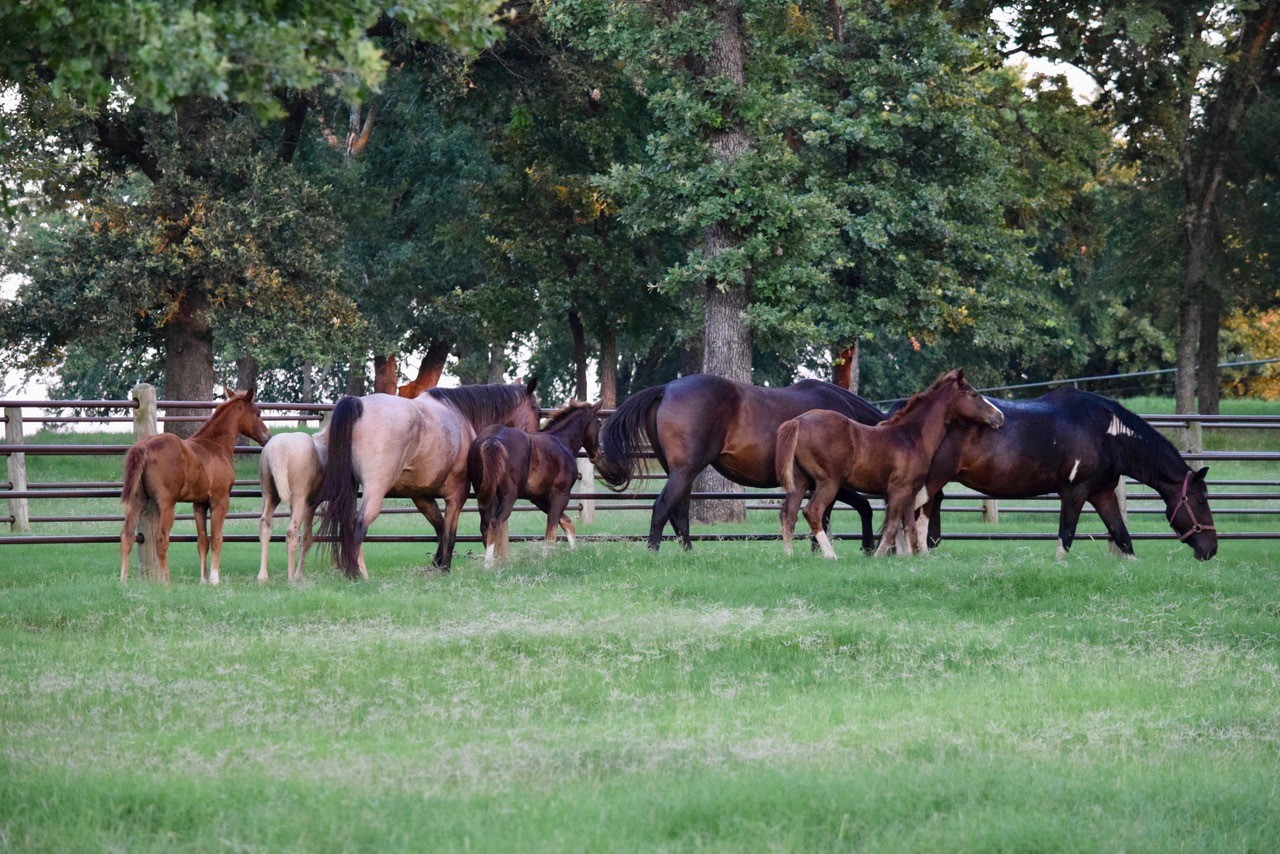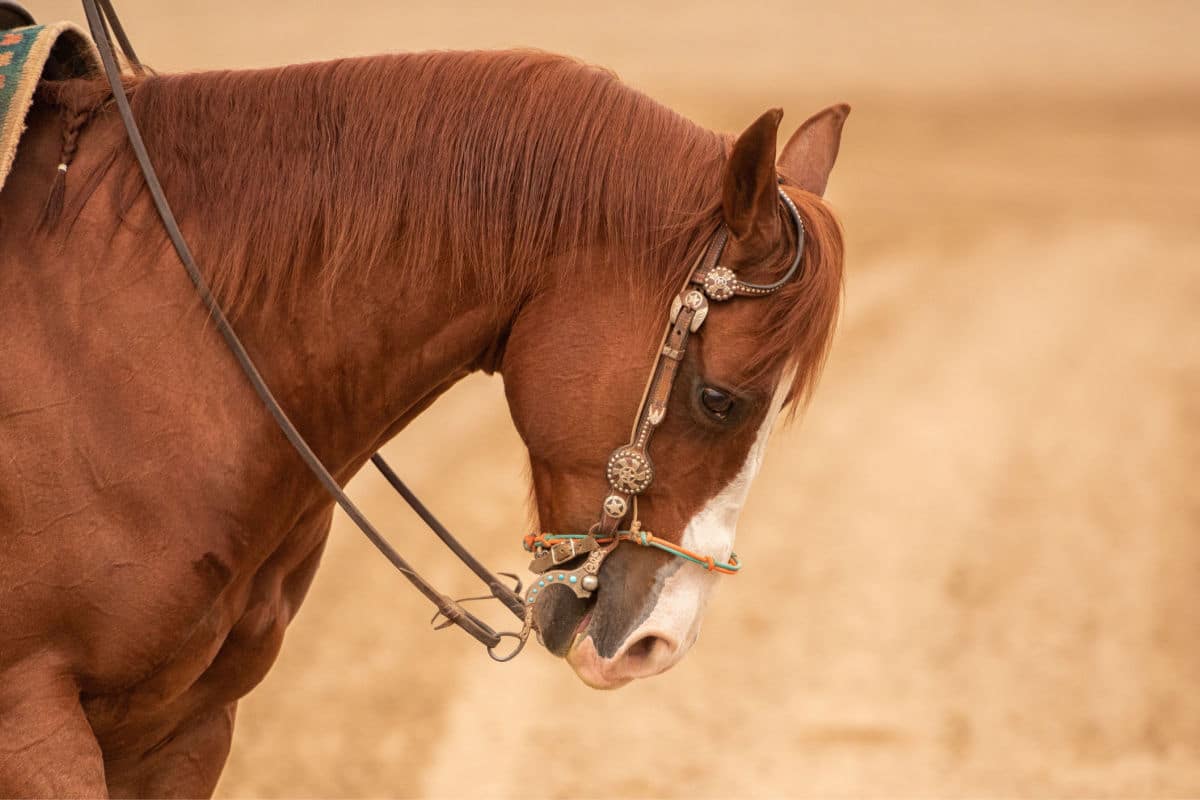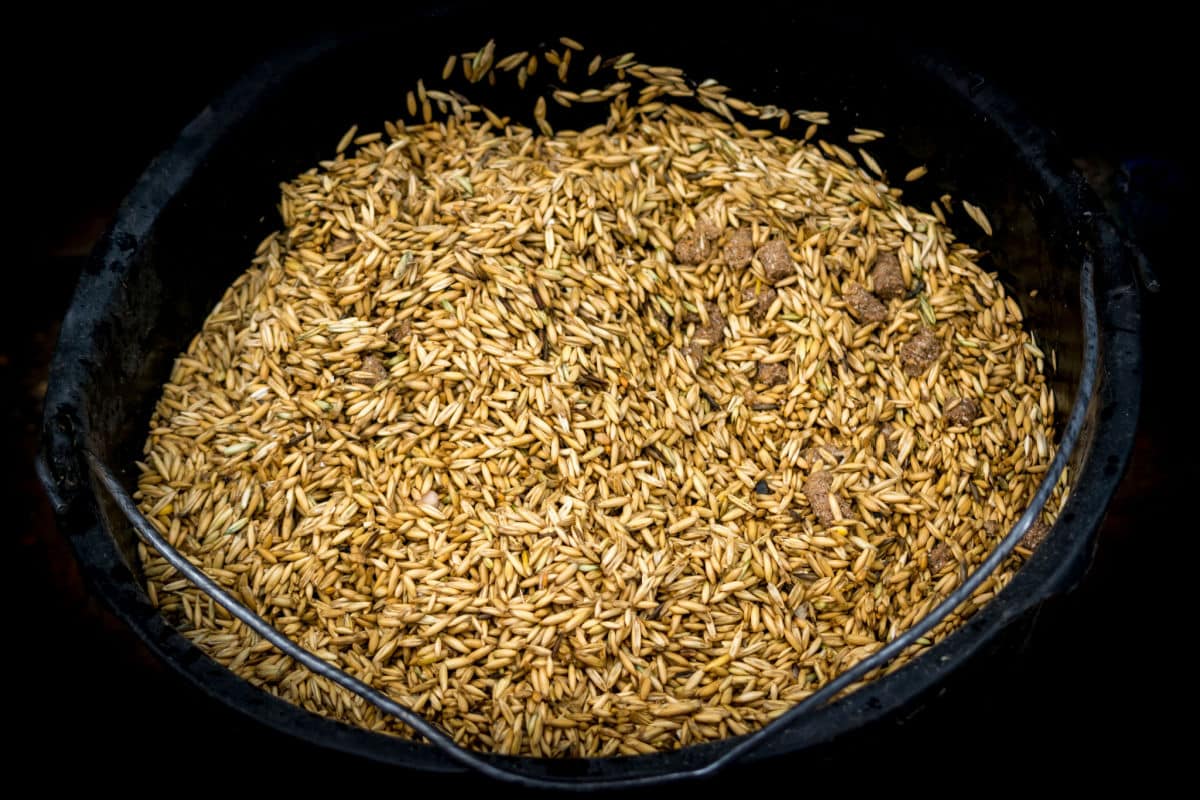Stacks of clean, fresh-smelling, greenish-yellowish 50-pound square bales are the picture of hay perfection for most horse people. We are often taught that horses are sensitive creatures requiring only the freshest, top of the line grass hays for optimal nutrition and health.
On the other hand, we think round bales are a recipe for digestive health challenges or disease and should be reserved for hardier livestock only.
But it’s a myth that horses should never be fed round hay bales. In truth, properly stored and handled round bales are perfectly safe for horses and may actually be a smart addition in many feed management situations.
Why the Round Bale Myth Persists
The big concern with round bales is the increased possibility that they may spread diseases like botulism. Even though square and round bales are typically baled at the same moisture content, round bales are more often stored outside. The bacteria that can cause botulism prefer moist conditions, so round bales left out in the dew and rain provide an ideal environment for bacterial growth.
In addition, when not handled properly round bales can be more prone to moisture penetration that leads to mold, which is a significant colic risk.
Because of this, round hay bales have gotten an unnecessarily bad rap. But when they’ve been stored correctly and kept dry they are perfectly safe to feed horses.
Round Bales May Actually Encourage Healthier Horses
Providing constant access to forage such as decent grass hay is the most critical component of a healthy diet for all horses. The equine gastrointestinal system is designed for a steady trickle of fibrous feed, which buffers stomach acids and is primarily fermented in the hindgut. It provides the bulk of nutrition for most horses not in heavy work and promotes all aspects of a healthy digestive system.
Restricting forage to just a few large meals a day with hours of nothing in between, on the other hand, causes problems for both the equine stomach and hindgut.
Round bales, therefore, are a good option in many situations for providing free access to forage.
Round bales:
- Are typically cheaper than square bales, pound for pound.
- Reduce labor, as they can be put out once a week instead of tossing individual portions multiple times a day. (Your supplier may deliver directly to your fields.)
- Can easily feed groups of four or more horses without being wasted.
If you manage more than a few horses, the benefits of feeding round bales are pretty clear.
Tips for Selecting, Storing, and Feeding Round Bales
To maximize the nutrition from round baled hay and prevent diseases, it’s important to choose quality bales that have been cut at the right time, store them properly, and feed carefully. Here are a few key things to keep in mind:
- For optimal nutrition, grass hay should be cut and baled when grasses are immature, just before developing a head.
- All hay should be baled with a moisture content of 15% or less.
- In round bales, grasses are better than legumes, because legumes have a looser thatch which allows more moisture to penetrate the bale.
- Hay must be stored inside or covered tightly to protect against the elements.
- Feed in a round feeder designed for horses (not cattle) to keep it off the ground and prevent spoilage from mud and waste.
- Monitor round bales carefully to check for mold throughout their use.
For detailed instructions on how to choose, store, and feed round bales to horses, check out this helpful guide to feeding horses round bales from the North Carolina Cooperative Extension Service of North Carolina State University.
Remember, it’s a myth that round hay bales that have been cut, stored, and fed properly are dangerous for horses. Rather, round bales can be a less expensive, simpler way to achieve the ideal, continuous forage feeding model.
Photo by Kevin Dooley licensed via CC2.0.




